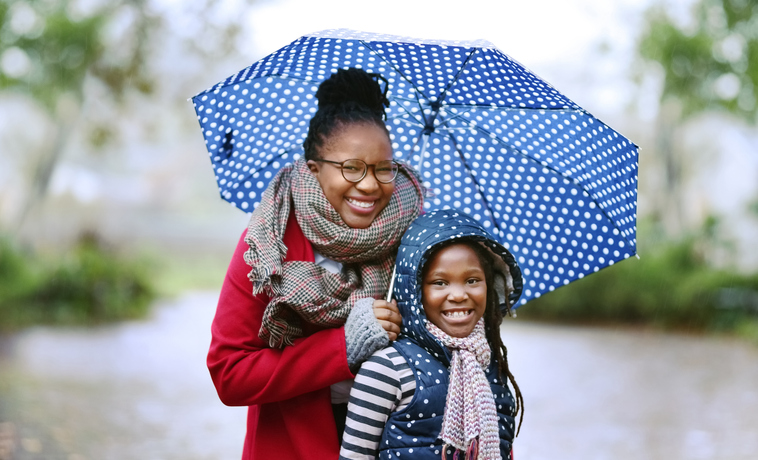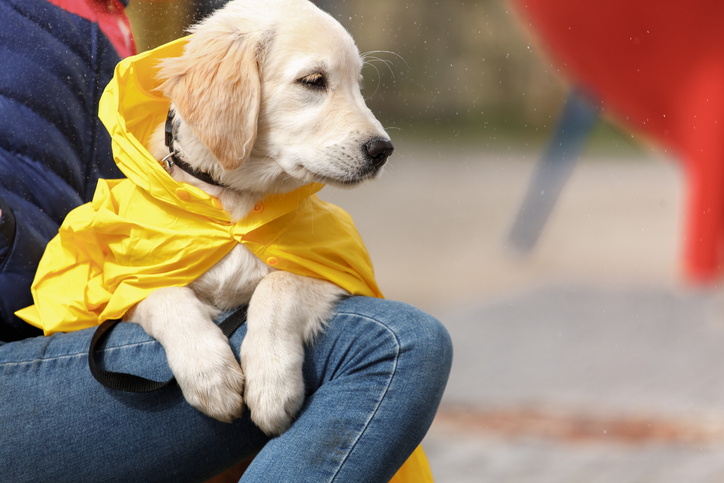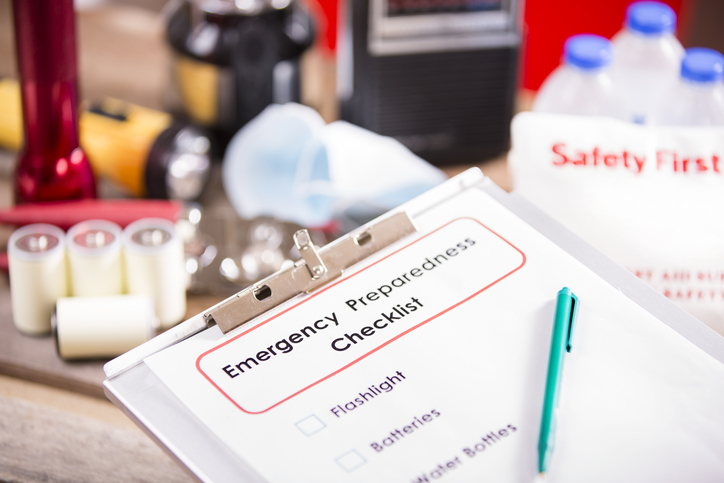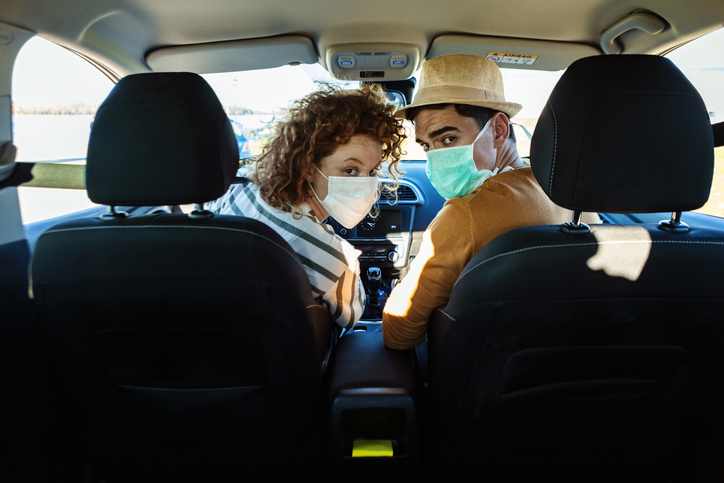Get your krewe ready – it’s hurricane season in New Orleans.
- Category: New Orleans, Community
- Posted on:

We know, we know. Every year you plan to hurricane prep, and every year, a tropical storm or weather event pops up, and then we scramble to gather supplies.
Planning for hurricanes and storms is key
Experts at the American Red Cross and the Federal Emergency Management Agency say planning is the key. Due to the COVID-19 pandemic, it is important now more than ever, that residents are prepared for hurricane season.
Your first defense is a disaster supply kit in an easily accessible place. You can store the kit in a footlocker or other sturdy container, and keep a smaller kit in your vehicle, advises the Red Cross.
Make a list. In the hurried confusion, you're likely to miss important items as you prepare your home or leave to seek shelter.
NOLA Ready has helpful resources for preparing your home, checklists for assembling a hurricane kit, and guidance for making a family plan.
Where do I start with hurricane prep?

Think about where you live and how you would leave, both from your home and on the roads around it. Pay attention to whether you're near a nuclear power plant, refinery, manufacturing plant, lake, river, dam, forest, or mountain. Be aware of the threats in your area.
Know where to go in an emergency. This might be a shelter or a close friend or relative's home. Set up a place to meet in case the family gets separated.
One item many people don't think about is cash. Although many Americans rely on bank cards or credit cards to make purchases, if phone lines are down in an emergency, the cards will be useless. The ARC advises having enough cash to last for a few days.
Experts suggest you keep a set of important family documents in your disaster supply kit unless you have them in a safe deposit box. Have an extra set of car keys handy.
How do I travel with my pet?

Don't forget to include planning for the evacuation of your pets. Red Cross disaster shelters don't allow pets, and neither do many hotels. Call your local humane society or other animal rescue organization and find out what disaster plans exist for pets and animals. Pick out at least two kennels along an evacuation route or in different areas of your town. If you plan to travel to a place where you can have a pet, take enough food and water for your pet. Be sure your pet has a leash, collar, and tags that show vaccinations.
What should I pack in my hurricane kit?

Here's a list of other items for your kit:
- A small tool kit that contains a pair of pliers or other tools needed to shut off a home's gas and water, plus a multipurpose penknife. Know how to turn off gas and water to the house, and how to turn off electricity at the main switch.
- A roll of duct tape.
- Prescription drugs to last up to a week. Replace them periodically to ensure potency.
- A first aid kit with basic over-the-counter drugs, like ibuprofen.
- A three-day supply of clean water—a gallon per person per day—stored in nonbreakable containers.
- A three-day supply of food. Canned vegetables and fruit, packaged crackers, granola bars, and other dry foods are best. You may need extra water if the dried foods (such as soups) need to be mixed with water. Don’t forget food and water for pets.
- An extra pair of eyeglasses.
- A mechanically powered diode flashlight (never requires batteries), candle, mechanically powered portable radio, and extra batteries for any battery-powered equipment sealed in a plastic bag to keep them dry. Consider a small solar cell panel to recharge batteries and power small electronic devices. These can be stored indefinitely and work when there is sufficient sunlight.
- Two-way walkie-talkies or CB radio.
- Matches in a waterproof container.
- Heavy-duty gloves.
- Sleeping bags or blankets.
- A few personal hygiene items.
Due to the COVID-19 pandemic, you should also include face coverings, hand sanitizer, and disinfectants in your home kit, just in case!
How will your home weather the weather?
Look at your home's structural integrity before a storm so you will be able to detect any new damage. In a hurricane or other disaster, your home's structural soundness may be the thing that keeps you and your family safe.
Although most people think of damage from a disaster as a roof that has blown off a home, the biggest problem is the side-to-side motion of the frame, according to the Institute for Business and Home Safety, a research and communication group that aims to reduce natural disasters' impact.
Strong winds and other forces will find the weakest link in your home.
The Institute's advice: After the storm or disaster, inspect your home for new cracks in the drywall, which might indicate shifting. Not all cracks mean a serious problem, though, so if you're not sure, consult a professional. Doors and windows that stick for no obvious reason, such as a loose hinge, also might hint of a problem.
In case of evacuation during COVID-19

If a mandatory evacuation order is issued during the COVID-19 pandemic, you must leave. The immediate threat to life from a major hurricane is more severe than the potential of virus exposure. We know our residents are concerned about exposing themselves to COVID-19 during evacuation. But, there are ways to protect yourself. To the greatest extent possible, do the following while evacuated:
- Practice social distancing - stay at least 6 feet away from other people
- Wear face coverings
- Wash your hands often and use hand sanitizer during transit
- Disinfect high-touch surfaces regularly
Due to the COVID-19 pandemic, you should also include face coverings, hand sanitizer, and disinfectants in your go-bag to prevent the spread while you are evacuated.
If a mandatory evacuation order is issued during the COVID-19 pandemic, City-Assisted Evacuation will still occur. All evacuees will be provided with masks. To the greatest extent possible, social distancing measures will be in place at evacuspots and at the Smoothie King processing center to prevent the spread of the virus. The State of Louisiana is securing additional shelter facilities throughout the state to spread out evacuees. Families will be kept together to the greatest extent possible.
More information about preparation and response in New Orleans can be found here: https://ready.nola.gov/plan/hurricane/
Information about hospital and clinic operations at LCMC Health and member hospitals can be found here: https://www.lcmchealth.org/lcmc-health-care-locations/emergency-preparedness/

.jpg)